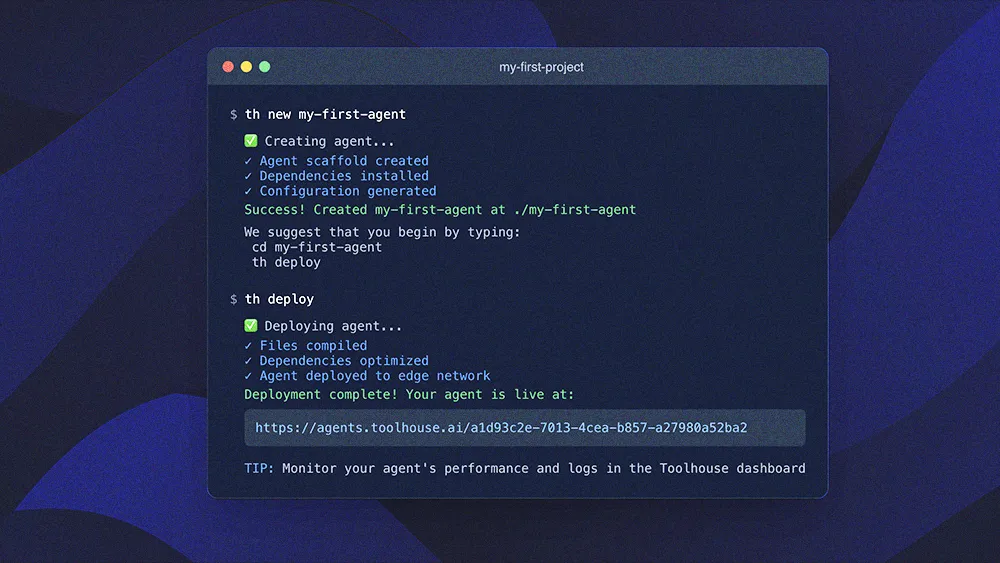
- Anthropic's Model Context Protocol aims to unify AI systems, but faces challenges with legacy enterprise systems and standards.
- Toolhouse CEO Daniele Bernardi discusses the need for enterprises to adopt existing MCP servers rather than adding complexity.
- Bernardi believes standardization struggles and policy hurdles will delay the arrival of artificial general intelligence.
The future of AI isn't plug-and-play. As intelligent agents move toward real autonomy, developers are stuck in a messy middle—grappling with legacy systems, scattered standards, and a fragmented digital stack.
Daniele Bernardi, Co-Founder and CEO of Toolhouse and a veteran product leader for Twitter’s Spaces API and Meta's revenue-driving tools, breaks down the state of AI action protocols—and the complex work still ahead.
Big unifier energy: Protocols like Anthropic's MCP lay the groundwork for a common tongue for AI. "The big promise of MCP is to unify everything and to give developers the tools they need to easily plug those actions into their models," Bernardi says. It's the dream of seamless, universal automation—but we’re still in the early chapters.
More servers, more problems: The real gap isn't infrastructure. It's uptake. "The problem doesn't lie in providing a server, but in providing the right client," Bernardi says. Right now, "there's a massive supply, but not a ton of demand just yet." Toolhouse is stepping in to help enterprises use what’s already out there. "We need to do a lot more to help enterprises go the route of consuming MCP servers, not push them to add complexity to the already ancient complexity they have," explains Bernardi.
Enterprise speed bump: Even with OpenAI and Anthropic in its corner, MCP hits friction where it matters: old systems. "A lot of enterprises are still legacy and they still have very old APIs that will need to be updated so they can be supported by MCP," Bernardi explains. The plug-and-play vision hasn't landed. "The big—and so far unfulfilled—promise with MCP is that you can plug the two very seamlessly. But in reality, there are big challenges still to be addressed, like authentication and enterprise support."
Standards TBD: "AI is moving very, very fast—faster than any other massive shift in technology," Bernardi says, and standardization is struggling to keep up. Like OAuth before it, MCP may need time to harden. "The jury is still out, and I think there's huge room for derivative works to be seen."

A lot of enterprises are still legacy and they still have very old APIs that will need to be updated so they can be supported by MCP.
Slow burn, big impact: The standardization issue is one reason Bernardi doesn't expect artificial general intelligence (AGI) to materialize in the very near future. "The shift to AGI, unless we completely change the underlying technology of models today, is not going to happen next year. It's going to happen in probably seven years from now," Bernardi says.
But when AGI does arrive, we’d better be ready. "We need to be extremely careful when we give AI models the ability to perform actions to make sure that those actions are going to increase productivity but not at the expense of massive waves of unemployment or the repurposing of jobs as we know them," says Bernardi. "I think AI should be an on-ramp for new jobs to be created."
Wrapped in red tape: Policy hurdles are slowing the big players. "There's so much red tape, and policy and privacy considerations, that the model providers as we know them are not going to be able to provide an answer very quickly," Bernardi says.
Meanwhile, the tech itself isn’t quite there. Agents still fumble in messy digital environments, and many platforms don’t welcome automation. As Bernardi puts it: "Before we even ask ourselves if a human needs to be involved at all times for fear that the agent will perform a wrong action, we need to ask ourselves: is the ecosystem going to change, and is the ecosystem going to finally be receptive to agents being allowed on big properties?"
Time will tell: The road to AI integration is anything but smooth—but momentum is real. "I'm pretty bullish that the final form of MCP is one that we haven't seen yet," Bernardi says. Until then, the work—and the friction—continues.
.svg)
